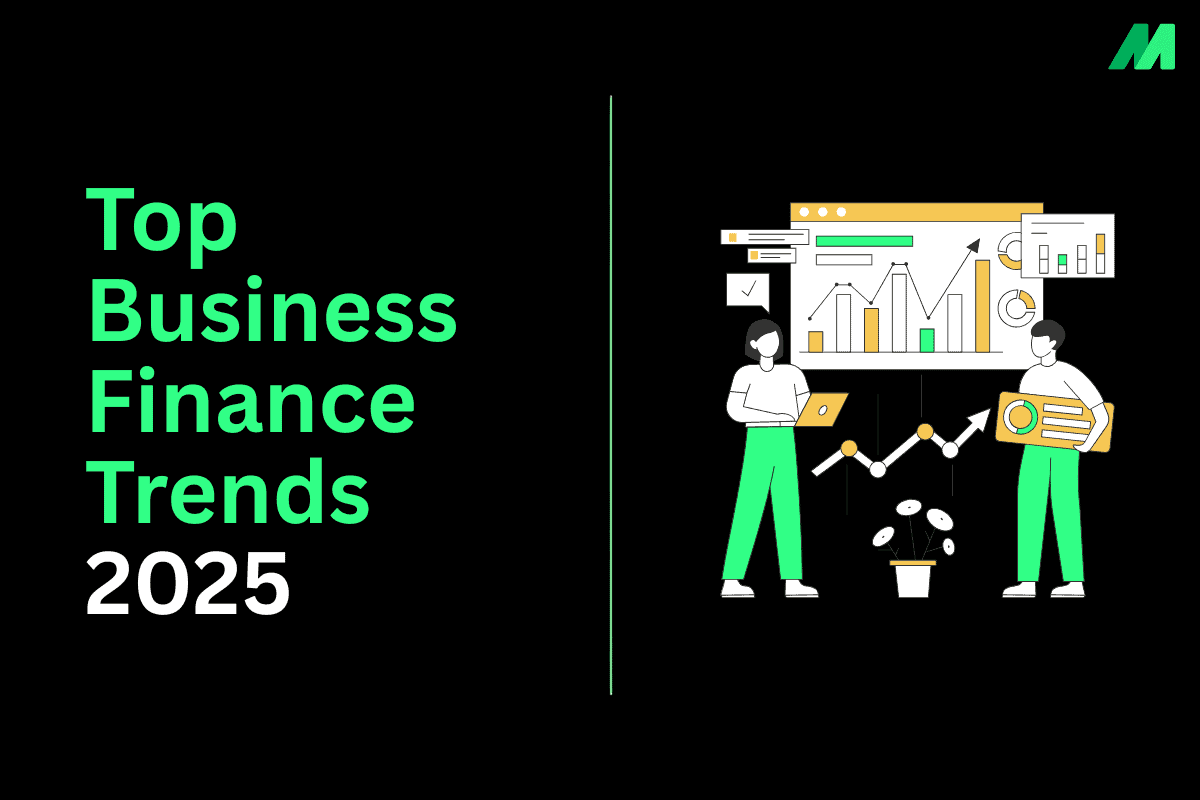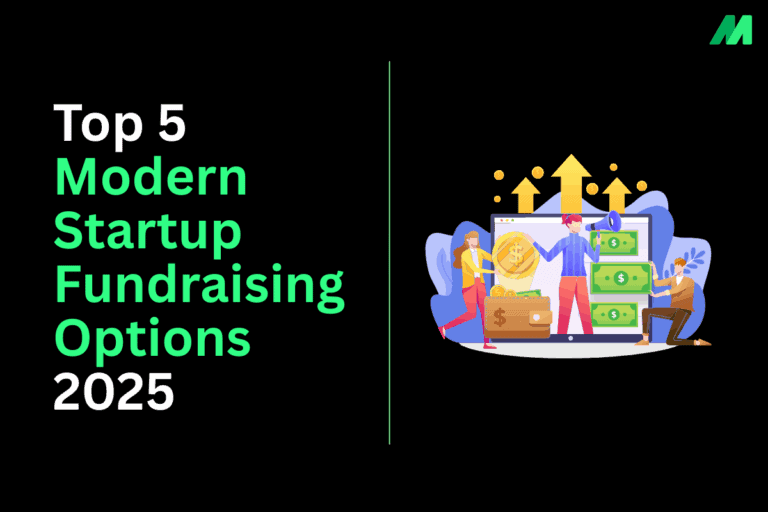As businesses gear up for an ever-evolving financial landscape, understanding the crucial business finance trends 2025 with AI and ESG innovations has never been more vital. This year promises transformative technologies and sustainability practices that will reshape how companies manage money, drive growth, and stay resilient in uncertain markets. From intelligent automation to ethical investing, staying ahead means embracing these game-changing trends to future-proof your business and maximize success.
1. AI and Automation in Finance
Artificial Intelligence (AI) is like a virtual assistant that analyzes information and automates tasks. AI automates repetitive finance tasks like invoicing, budgeting & forecasts, and fraud detection, many times better than humans can do.
Example: A small business can use AI solutions to automatically analyze its spending and predict its monthly revenue. Because the AI does this fast, the owners can spend more time making other business decisions, and the business makes fewer errors.
AI (artificial intelligence) and automation are changing finance by reducing routine manual processes that require human effort, like invoicing, reconciliations, and compliance management. Finance leaders are taking advantage of AI solutions in new ways, using AI for a company’s financial forecasting, risk management, and fraud detection by stringing together large amounts of information and predicting the economy with greater accuracy.
As a result of automation efficiency, finance teams can apply their time toward strategic decisions and improve speed and efficiency. A.I. is rapidly being adopted. A recent Deloitte study analyzed artificial intelligence (AI) and found that 72% of companies were using AI in at least one business area; however, previously, only about 55% were using AI. These trends are forcing down costs, so more small and medium businesses will have access to a wider range of AI-powered finance solutions.
Key takeaway: AI makes finance faster and more accurate, so finance teams have a little bit more time to think strategically.
2. ESG and Sustainable Finance
ESG, or Environmental, Social, and Governance, is basically companies doing right by the planet, society, and their own ethics as leaders.
For example, if a company is reducing its carbon footprint and supporting fair labor practices, it makes it easier for investors to want to invest in companies that position themselves as ethical.
Environmental, social, and governance (ESG) criteria have become an integral part of finance as regulators and investors demand transparency, accountability, and ethically compliant business practices where they invest. ESG integration is now the standard in pursuing impact investors, and when trying to leverage financing options such as green bonds and sustainability-linked loans.
Chief Financial Officers (CFOs) are integrating sustainability into corporate finance activities by considering carbon footprints, ethical supply chain initiatives, and Corporate Social Responsibility (CSR) strategies. With ESG standards being adopted widely, there is currently 92% usage in regions like North America and Asia Pacific, an organization can prepare for more regulation while having long-term profitability in line with sustainability, too.
Summary Box:
- ESG helps companies gain investor trust.
- It leads to sustainable, long-term growth.
- Many governments now require ESG reporting.
3. Digital Transformation and Fintech Innovation
Think of digital transformation as upgrading from an old flip phone to a smartphone—it’s about using new technologies like mobile payments, cloud computing, and blockchain to improve finance.
Example: A local retailer using a mobile wallet app can offer customers contactless payments, making shopping easier and safer.
Digital transformation continues to reshape financial services with cloud-based financial solutions, real-time reporting, and AI-driven analytics. Technologies such as mobile wallets, blockchain, embedded finance, and decentralized finance (DeFi) enhance transaction security, transparency, and speed. Financial institutions focus on cybersecurity and compliance within this evolving digital ecosystem. Fintech advances enable new revenue models, cross-industry partnerships, and financial inclusion with easier access to funding and payments, especially for SMEs.
Key Benefits: Efficiency, real-time insights, and better customer experiences.
4. Economic Uncertainty and Risk Management
Businesses inevitably encounter unforeseen challenges, whether they come from rising inflation or problems with the supply chain. To effectively plan and manage risk, companies need to understand they can do two things: plan for contingency and deploy their capital smartly.
How-To: Develop various financial scenarios in the process of monitoring and building up cash reserves.
Ongoing economic uncertainty brought on by inflation, geopolitical strife like the Russia-Ukraine situation, or more sustained tariffs and supply chain disruptions has propelled CFOs to focus on strengthening risk assessment and management at their organizations. Financial resilience will come from scenario planning, liquidity management, and distributed revenue streams. Building flexible strategies through stress-testing can help organizations prepare and understand economic best- and worst-case scenarios, while also providing them the ability to be more nimble in truly unpredictable markets.
5. Data Analytics and Real-Time Decision-Making
Finance teams will have live updates while they view funds flow on data portals to improve and streamline decision-making.
For example, the CFO uses a dashboard report to view key metrics that can help to see and find early trends, and make funding adjustments.
The growth of financial data is accelerating quite quickly, which leads to the adoption of big data metrics, the development of predictive modeling, and the becoming accustomed to real-time dashboards. These current tools help finance teams to quickly (and more accurately) determine risk, measure KPIs, manage cash flow, and take action when proactive decisions are necessary. Real-time financial reporting also takes care of the gaps in the traditional reporting cycle and helps the CFO to adhere to the role of a strategic advisor by providing senior leadership with timely and accurate information.
6. Regulatory and Compliance Challenges
The financial leaders need to keep pace with new laws on taxes, privacy, and ESG. AI tools can help automate compliance to avoid penalties for lack of compliance.
The role of a finance leader has become increasingly complex in the modern regulatory landscape: taxes involving reforms, anti-money laundering (AML) regulations, privacy laws, and ESG disclosures make daily activities difficult to navigate. CFOs spend on AI-driven compliance technologies, automated regulatory reporting, and blockchain audit trails to find a way forward. By monitoring the developments of legislation and by adopting RegTech solutions, organizations avoid potential penalties while building a financially transparent governance.
Quick Tip: Stay informed of changes through trusted sources and use software to track compliance.
7. Workforce Transformation and Talent Management
Finance roles are morphing from basic number crunching to analyzing data and influencing strategy. Learning new tech skills is critical now and in the future.
Call to Action – Encourage your teams to take online courses on data analytics and the basic fundamentals of AI.
Automation & AI are transitioning finance functions away from execution to strategic insights and require new skills in data analytics, AI literacy, and digital fluency. Personnel with developed finance skills, the giants of the profession (CFOs), are looking to prioritise their approaches to upskilling and reskilling, while also adopting a flexible and digitally supporting/attracting model of work to attract talented resources and retain them. Prioritising a culture of learning, scaling up leadership development, and hybrid environments would encourage a more agile finance and xxx model ready for the inevitable transformation of technological change.
8. Blockchain, Cryptocurrency, and Financial Security
Blockchain allows people to document transactions in a secure manner, yielding transparency and making finance safer. As cryptocurrencies become more mainstream (e.g., Bitcoin), businesses need to understand how to utilize and/or handle them securely.
Use of blockchain can accelerate secure and transparent transactions and financial operations in key supply chain and cross-border payments ecosystems, and as cryptocurrencies and central bank digital currencies (CBDCs) also become more mainstream, businesses will begin to think about strategies for integration. As consumers possessing financial data become increasingly digital, cybersecurity will continue to be a priority with the consumption of new sophisticated protocols (eg, multifactor authentication) and tools (e.g., AI threat detection).
Analogy: Blockchain is like a public ledger that everyone can see, but no one can change fraudulently.
9. Digital Payments and Personalized Finance
Digital wallets and AI customize different funding products (e.g., loans and investments) to different businesses as unique or separate. Making access to and use of funding easier.
Example: An individual who owns a small business now receives tailored loan offers based on sales data. Borrowing is a simple process.
Digital wallets, contactless payment options, and financial technology platforms offer businesses beneficial customer convenience and reduced transactional costs. Personalized financial strategies that leverage AI-powered insights, based on lending terms framed around business realities, budget planning, and investment strategy, open and drive flexible funding, and there are certainly more responsive financial ecosystems that advance personalization.
In 2025, business finance will come down to AI, ESG, and going digital. Groups that accept these ideas by using the right tech, adding sustainability, and training workers will be ready to deal with money problems and grow over time.
FAQs
Q: How do I start using AI for my business?
A: Start with small things, like using simple AI tools to auto-make invoices.
Q: Why should my small business care about ESG?
A: It grows trust and lets you work with moral investors and buyers.





MONEY